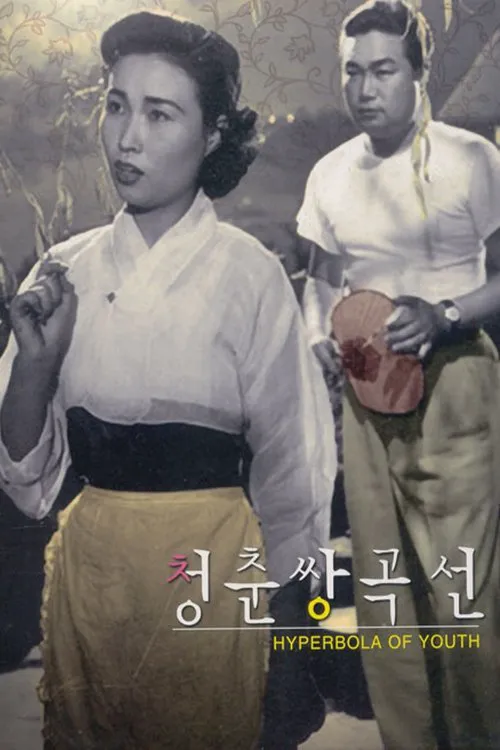Hyperbola of Youth

Plot
In the film "Hyperbola of Youth," the contrast between two young men from vastly different backgrounds serves as the foundation for a poignant exploration of identity, class, and the complexities of human relationships. Myeong-ho, played by Hwang Hae, is a devoted middle school teacher who has experienced the harsh realities of poverty throughout his childhood. His unwavering dedication to his students reflects not only his selflessness but also a deep-seated desire to make a difference in the world. On the other hand, Bu-nam, portrayed by Yang Hun, is the privileged first son of a trading company's president. His life is marked by excess and extravagance, as evidenced by his condition stemming from overeating. This indulgent lifestyle has led to an unsettling disconnect between his material possessions and the emptiness that lies beneath. The convergence of Myeong-ho and Bu-nam's lives occurs when a doctor advises them to adopt each other's life styles for a two-week period, suggesting that this drastic change will have a profound impact on their physical and mental well-being. Myeong-ho is tasked with moving into Bu-nam's lavish household, where he is initially struck by the opulence that surrounds him. As he settles into his new environment, he develops a close bond with Bu-nam's younger sister, Ji-hyun, a relationship that blossoms into romance. Meanwhile, Bu-nam is forced to immerse himself in Myeong-ho's world, which is starkly different from his own. He is struck by the simplicity and humility of Myeong-ho's life, learning valuable lessons about the importance of hard work and the value of human relationships. As Bu-nam develops feelings for Myeong-ho's younger sister, Su-ji, he undergoes a transformative experience that challenges his long-held assumptions about himself and the world around him. As the two-week experiment comes to a close, Myeong-ho and Bu-nam are faced with an unexpected turn of events. They decide to leave their respective worlds behind and get married to each other's sisters in a joint wedding ceremony. This unconventional arrangement not only serves as a symbol of their newfound love but also represents a rejection of the societal expectations that once bound them. Throughout the film, the directors expertly capture the complexities of human relationships, demonstrating that love knows no boundaries, not even those of class and social status. The movie beautifully weaves together themes of identity, self-discovery, and the transformative power of love. By exploring the intricacies of Myeong-ho and Bu-nam's journey, the film highlights the importance of embracing one's true self and forging connections with others. The cinematography in "Hyperbola of Youth" is equally impressive, with meticulous attention paid to the contrasts between Myeong-ho's modest abode and Bu-nam's opulent mansion. The stark visual differences serve as a powerful metaphor for the two men's divergent backgrounds and experiences. The movie's use of color also adds depth to the narrative, as the film's palette shifts from the muted tones of Myeong-ho's life to the vibrant hues of Bu-nam's world. Ultimately, "Hyperbola of Youth" is a poignant exploration of the human condition, challenging societal norms and expectations in the process. By celebrating the beauty of nonconformity and the power of love, the film reminds us that identity is not solely defined by our circumstances, but by our choices and the connections we make with others. As Myeong-ho and Bu-nam's story unfolds, it becomes clear that love has the capacity to transcend even the most insurmountable obstacles, offering a powerful reminder of the transformative potential that lies within each of us.
Ulasan
Rekomendasi


